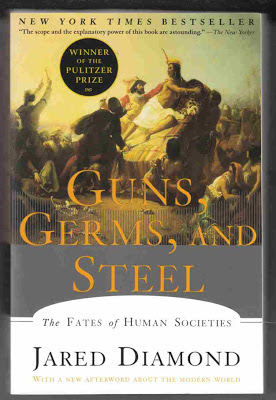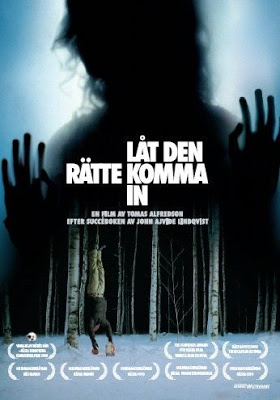
As an experiment in blogging from the iPad, I am also trying to say something about my thoughts lately. One of them is about the need to be active, to do something, no matter what.
There is obviously nothing wrong with the first part, more with the latter: we are content when we do all kind of stupid things. We might regret them later, but while we are engaged in them we are enjoying it. A brilliant example is my grandmother; when she retired from her job she had a crisis, she did not know what to do, so she came to our house and catalogued every book we had. And we had hundreds. In a recent film Maggie Smith's character said that her apartment is so small that she can make it spotless in 30 minutes; then what is she supposed to do? Why did she need to do anything?
I also remember the times when, no matter what idiot designed the feature and what moron asked for it, I was happy to feel useful coding it. I imagine that people with jobs that I consider inferior, like housecleaning for example, would also feel better doing that instead of nothing at all. We sometimes curse the people that use us for their own benefit: the faceless corporation, the greedy boss, the slave driver manager. But isn't that a bit two faced if we actually enjoy it and feel that it gives purpose to our lives anyway?
What is this obsession with doing something? I can imagine that during our evolution, individuals who needed to do something to keep occupied were more successful than the ones sitting around doing nothing. That we are obsessive by design is a bit unsettling.
I guess the true test of this hypothesis would be to get into a situation where I am neither constrained to do something nor having a particular craving at that moment. Alas, this is hard to achieve. Even during holidays, there is first a time of respite from the stress of work related thoughts, then a bit of relaxing, then some things that we had planned before and then... it's over: we need to get back to work.
There have been rare occasions when I would become bored with sleeping, watching movies, reading books and news, playing games or learning whatever held my fancy at the moment. It is a time of creativity, of sifting through previous ideas and dreams and deciding some are not worth the effort or the resources to complete (or are damn impossible) and, yes, of doing. And yet the doing is never as good as imagined before starting it and never as satisfying as expected after having been done it. Yet the sheer pressure of sitting still and doing nothing forces on.
Of course, being a rather ordinary human being, I can hardly consider myself free of constraints. The rare occasions mentioned are just that: extremely rare. Having a lot of money might enable this kinds of situations, but even then I suspect the real hurdle would be to actually get to be alone. Alone with one's thoughts, alone from incessant distractions, free to let the mind roam. Would I then do something great, as I often daydream? Would I find the situation satisfying enough to not do anything? Or would I bore myself and be forced to seek the very distractions I have been fleeing? And before feeling left out and ignored, dear wife, I have to mention that this is an exploration of myself, outside any context, and that includes you, not forgotten, just off topic.
The answer to the question above is that I don't know, really. I just feel that the true test of one's life is to have the opportunity to imagine its next steps free of constraints and the resources to follow that path. Until then, we are just absorbing stuff, like biological capacitors. And sometimes we die before we get to discharge. I refuse to even consider people that learn nothing from their experiences.
There was a TED talk about the evolution of computer intelligence. We are at the edge of a revolution when computers get as smart as us and then exceed that intelligence. It is inevitable. People will be replaced by machines in increasingly more fields of expertise until there is nothing left to do. Can you imagine how that would be? I can't at the moment. Like pets to exceedingly smarter computers, we would either explore new avenues of thought or just sit and eat and sleep and fornicate. The pessimist that I am, I predict the latter. We will drown in the thing that defines us next after intellect: socialization. You already see hints of this now (I am talking of you, Facebook!), but this will only get worse.
I am torn right at this very moment between exploring this scenario (and of course, finding a solution) and the very subject of this post: doing or not doing something because we need to. Of course, this post must win for now. I can save the world later (I am putting it in my todo list).
My life is really quite uneventful, but I wonder if it should ever be different. The Chinese do have that curse "Be that your life is an interesting one". Is that truly that awful? Why is it that whenever I feel content with my life I also feel the need to change it? And when I do not, I feel the need to be content. Must I journey to find myself, as in so many bullshit movies and books? And if so, what will I find? Will I even want it after finding it? Is my life like a boring movie that must pick up the pace and, if so, who is watching it besides myself and who gets to direct it?
 I was looking for something on my blog using my iPad and I noticed that the format of the blog was horrible. It used a "mobile" mode by default. That meant no Javascript, fixed width, etc. Pretty nasty. There is a link at the bottom of the page that says "View web version" which changes the "m=1" parameter in the query to 0, which makes it accessible as it should have been.
I was looking for something on my blog using my iPad and I noticed that the format of the blog was horrible. It used a "mobile" mode by default. That meant no Javascript, fixed width, etc. Pretty nasty. There is a link at the bottom of the page that says "View web version" which changes the "m=1" parameter in the query to 0, which makes it accessible as it should have been.






